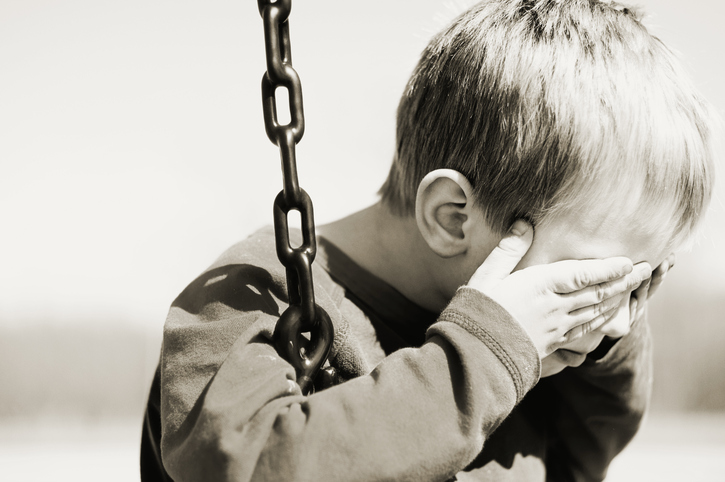
Fewer children, shuttered schools and the promotion of pets over family are but a few effects of South Korea’s plunging birth rate, according to Seoul-based Irish Columban, Fr Donal O’Keeffe.
The number of babies expected per woman in South Korea dropped this year to 0.72 and will continue to fall through 2025, when it’s expected to reach 0.65, according to the country’s latest statistics, far below the replacement rate of 2.1.
Speaking to The Irish Catholic newspaper, Fr O’Keeffe said that the lack of children is a “huge concern” in South Korea.
“I remember when I came here initially, 48 years ago, outside our door there were kids everywhere, running around and playing. Now, you don’t see any kids,” he said.
The government is proving powerless to halt or reverse the trend, with Fr O’Keeffe explaining that “money is being poured into it” to little effect.
“Schools are closing right, left and centre. Universities are being forced now to close because there’s no students coming through. There are couples – first of all, marriage rates are plummeting too – but couples then are choosing not to have children.”

A taxi driver in Essen, Germany, is contesting a fine imposed by local authorities for displaying a Bible verse sticker on his vehicle, which reads “Jesus – I am the way. The truth. And the life”.
It led to Jalil Mashali being fined for what the city deemed unlawful “religious advertising,” the rights group ADF International said Wednesday.
Mashali, a Christian convert from Iran, is challenging the fine, arguing that the sticker is a personal expression of faith rather than advertising.
Essen authorities say that the sticker violates a local ordinance against religious advertising on taxis, a stance rooted in a 1998 Federal Constitutional Court ruling. However, Mashali and his supporters contest this interpretation, asserting that the sticker falls within his rights to express personal beliefs.
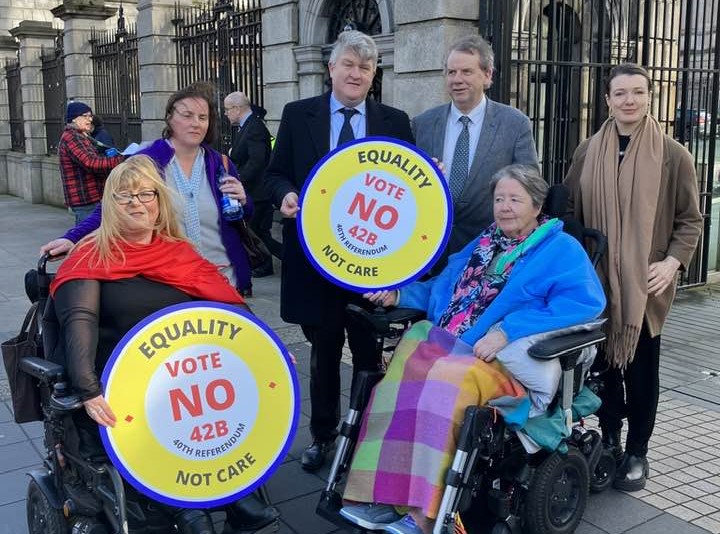
The Government’s proposed “care” amendment would deny disabled people’s “autonomy, dignity and equality”, according to a new group formed to campaign for a No vote.
Speaking to media yesterday, Ann Marie Flanagan of Equality Not Care said the amendment “seeks to deny us the right to state support such as personal assistance services”.
“What is required is constitutional obligations to provide support services to enable everyone to participate in economic, social and cultural life,” Ms Flanagan said.
“The vast majority of carers are women. The replacement wording removes any mention of economic rights and denigrates the dignity of the family,” she told reporters.
Dr Margaret Kennedy, who lives with a neuromuscular disease, added: “When I first read the article, I was absolutely appalled. It places the responsibility on families to look after, care for those who are sick, disabled or old. If the Yes vote wins, it will enshrine in this Constitution, that the family is responsible for my life. I won’t have a say. I see this article as another attack against disabled people’s rights.”
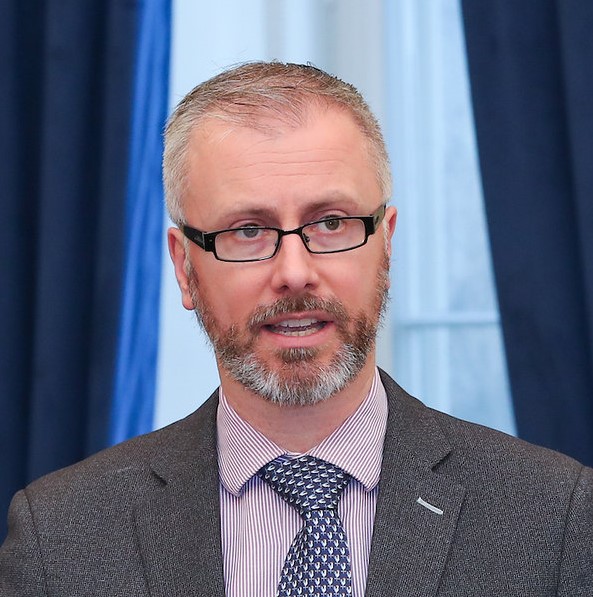
Minister Roderic O’Gorman has deflected criticism of the referendum on care by saying it is not about disability which may need a separate amendment.
His comments follow a raft of criticism from NGOs that the proposal does little or nothing for people with disabilities.
“This is not a disability amendment to our Constitution, this is a care amendment. There may be a very good case for a specific disability amendment to our Constitution but that is not what we are seeking to achieve. This is about recognising care,” he said at an event in Galway.
Nonetheless, Minister O’Gorman said that the care amendment would empower Government ministers to lobby for change, and for people to take court cases.
“I believe that this will be important to empower me, and whoever succeeds me as Minister for Disability, to advocate for more investment,” he said.
“Politicians and policymakers will draw strength if this amendment is passed, but ultimately, people with disabilities will have an avenue to go to the courts, which they don’t currently have and I think that that is important”.

A further two major NGOs will not campaign for the Government’s proposed “care” amendment to the Constitution.
This follows a call for a No vote of the same amendment by the Free Legal Advice Centres (Flac).
The board of the Independent Living Movement Ireland (ILMI) voted unanimously that it has “no position as an organisation” on either of the forthcoming referendums and it has withdrawn from an alliance of civil society groups campaigning for a Yes vote.
The ILMI and the other organisations in the ‘equality coalition’ had built a ‘comprehensive’ understanding of the term “care”. However, after the wording of the amendment “fell short”, the coalition lobbied for changes, but none were accepted.
Meanwhile, the Irish Council for Civil Liberties (ICCL) said the care amendment “will not provide meaningful legal protection to any person who gives or receives care”.
The ICCL said it will not be taking part in the referendum campaign but hoped it is “well informed, and that human rights and equality are given meaningful consideration during the debates”.
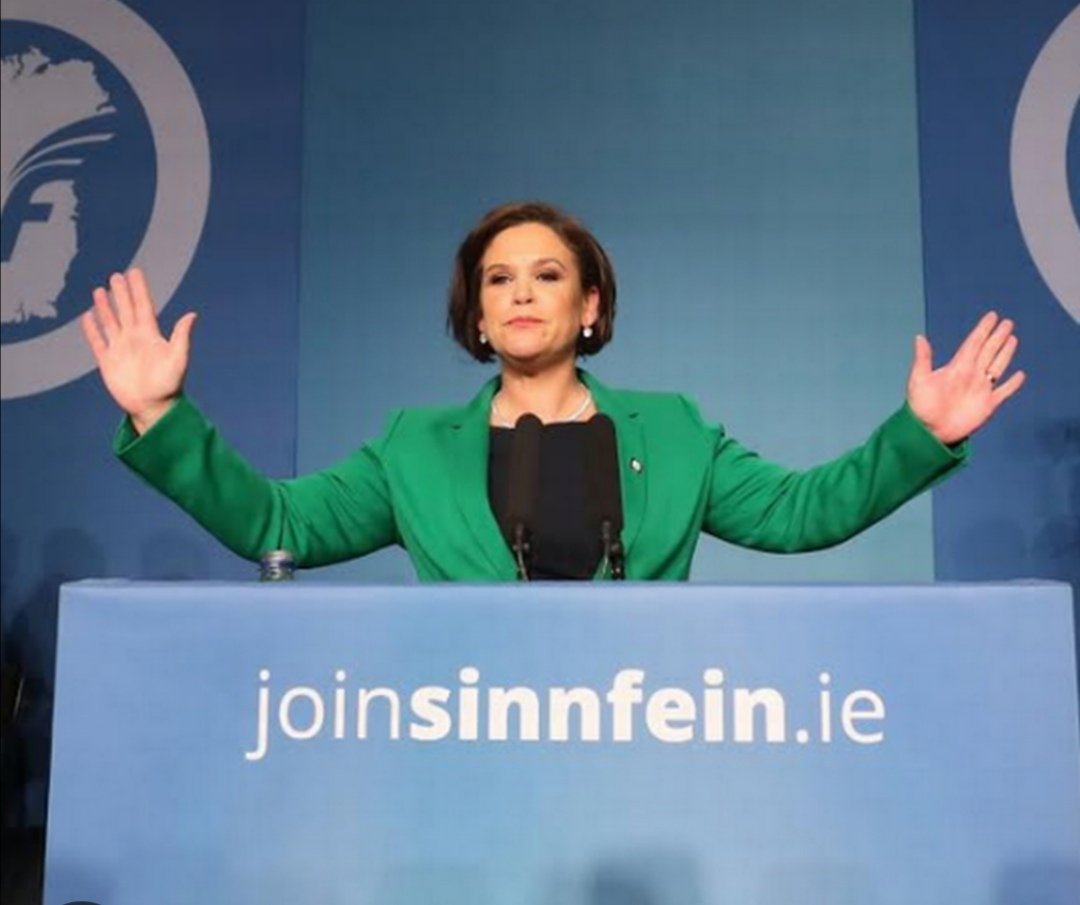
Speaking at the launch of the party’s campaign for a Yes-Yes vote Ms McDonald said the government had acted in haste and failed to consult properly or adopt the work that had been done by the Citizens’ Assembly.
She said that she had spoken to carers who were supportive but also those who viewed the referendum on care as mere “lip service”.
“On the one hand, it represents a step forward, but on the other hand, it’s not the comprehensive, copper-fastened recognition of care, vindicating the rights of caring, carers, inside the home and beyond.”
“Should this fail, the question we would put would be the wording as per the Citizens’ Assembly.”
The Dublin Central TD said it would be her ambition to do so early in the term of any government Sinn Féin took part in.
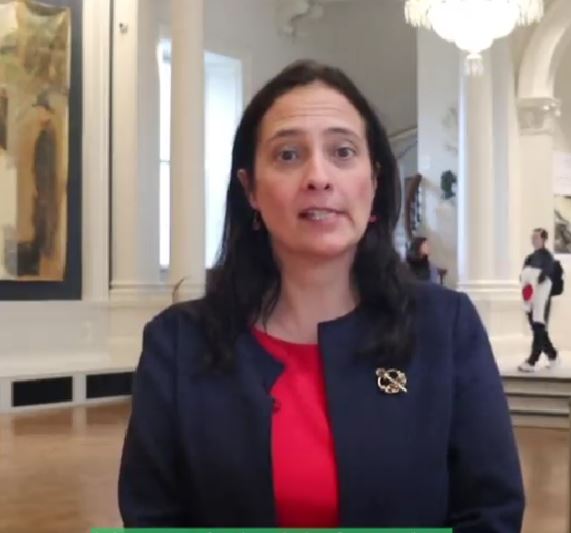
Media Minister Catherine Martin is “simply wrong” about what the Constitution says about mothers in the home, according to the chairwoman of the Electoral Commission.
Reacting to Ms Martin’s comments specifically in an interview with the Irish Mail On Sunday over the weekend, Justice Baker said the Minister was “simply wrong.”
“[The Constitution] says something much more positive than that. It says something that is a more positive statement of values. It says that the work women do in the home provides an important support to the common good of society.”

Sunday church attendance is just 80 per cent of what it was in 2019, Telegraph analysis has revealed, despite the Church of England claiming that it has “bounced back” after the pandemic.
The figures reveal that church attendance has more than halved since 1987, prompting clergy to warn: “This is a doom spiral of the church’s own choosing.”
In 2023, The Telegraph published an investigation which revealed that parishes are closing at a record rate, prompting fears that the Church had been “dealt a death knell”.
The investigation found that almost 300 parishes have disappeared in the past five years alone – the fastest rate since records began in 1960.
They also came amid declining congregation numbers, leaving many clergy afraid to speak out for fear of losing their jobs.

A former Dutch prime minister, Dries van Agt, has died by euthanasia, with his wife Eugenie. They were both 93. Numbers availing of euthanasia in the Netherlands keep rising and the grounds keep expanding.
Their deaths last week are seen as part of a growing trend in the Netherlands for “duo euthanasia”.
Although still rare, euthanasia of couples was first noted in a review of all cases in 2020, when 26 people were granted euthanasia at the same time as their partners. The numbers grew to 32 the following year and 58 in 2022.

The Free Legal Advice Centre (FLAC) has urged a no vote in the forthcoming ‘care’ referendum.
The amendment would delete a protection for mothers to not be forced to work outside the home due to economic necessity and replace it with a new article where the State would merely “strive to support” care within the family without any reference to mothers or home.
FLAC said the wording of the proposed amendment on care is ineffective, “implicitly sexist” and is unlikely to provide carers, people with disabilities, or older people with any new enforceable rights.
It said it is also unlikely to require the State to provide improved childcare, supports for carers or for children with disabilities.
FLAC said it is “hugely regrettable” that the legislative process around the referendum bills was truncated and says the “rushed process” around finalising the amendments has contributed to the weaknesses of both referendum proposals.
It support the referendum on “durable relationships” despite uncertainty around the meaning of the term.